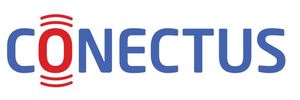We are happy to annonce a new CONECTUS member. SUBRA is a Danish company focusing on innovation, industrial scale production and making a sustainable impact through energy technology development and global collaboration. Founded in 2014, SUBRA A/S is a spin-out from the Technical University of Denmark and is based on more than 15 years of innovation and research in superconductor technology and surface science.
Images
European Workshop on Superconductivity for Sustainable Energy Systems and Particle Accelerators
Institutes and Industry joined forces for an international workshop on the impact of superconductivity for increased sustainability of energy systems and particle accelerators. The workshop was hosted by the GSI, Gesellschaft für Schwerionenforschung mbH a Helmholtz institute at Darmstadt, Germany and was organized by GSI together with CONECTUS, the European association of companies in superconductivity.
From October 18th to 20th 2023 experts on superconductivity discussed recent progress in the development of superconducting material and devices for enhanced sustainability. The workshop was a great forum for exchange between the communities of accelerators and energy systems, and also for communication between participants with a research or industrial background. Renowned representatives from European research institutes and European industry presented the latest developments in the field and discussed their respective presentation with the audience. The presentations were supplemented by a general round table discussion on the most pressing questions regarding the development and use of superconducting devices to enhance sustainability. GSI experts from technology transfer contributed to and moderated this round table. Moreover, the workshop host GSI organized a guided tour of the impressive FAIR project currently under construction. This was a good conclusion to an intensive and successful event.
CONECTUS would like to thank the organization team of GSI, headed by Peter Spiller, for the excellent collaboration in the organization of the event and for the hospitality to also host the CONECTUS Annual General Meeting as a side-event.
For further information, please see:
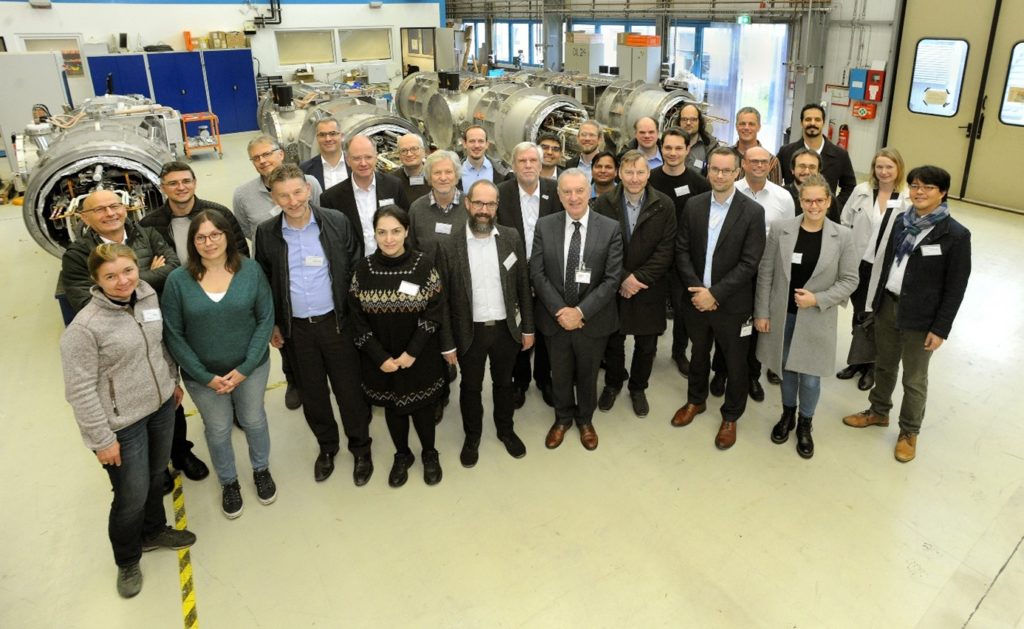
CONECTUS will host Summer School in Prague
The ESAS Summer School on Superconductivity organized and hosted by CONECTUS will take place in Prague, Czech Republic, on June 24-28, 2024. Given the nature of CONECTUS Association, in addition to general theoretical topics, our School will be focusing mainly on practical applications and also showcase industrial use of superconductivity. More info.
CONECTUS at ISIS-30 in Korea
CONECTUS took part at the 30th International Superconductivity Industry Summit held in Daejeon, Korea, 7. – 9. 11. 2023. This time we were represented by our members Dr. Prusseit of THEVA and Dr. Fischer of Leybold.
Dr. Prusseit gave the attendees and overview of activities of CONECTUS members and also presented selected major projects in the field taking place in Europe.
Our main conclusions from the meeting:
New technologies (Compact nuclear fusion, Quantum computing, Hydrogen technology, Power generation – Transmission – Generation) are the main drivers for further large-scale industrial adoption of superconductivity.
High Temperature Superconductors are getting more attractive within low and high magnetic field applications like MRI, fusion magnets, generators and accelerator magnets.
Superconducting electronics are mandatory for quantum applications.
Several coated conductor manufacturer are increasing capacities and reducing costs significantly in the next years.
ISIS and its members will support the recently formed Superconductivity Global Alliance aiming to spread awareness of superconductivity and its key role in future on the highest national and political levels.
We are already looking forward to the next ISIS-31 to be held in Japan in 2024!
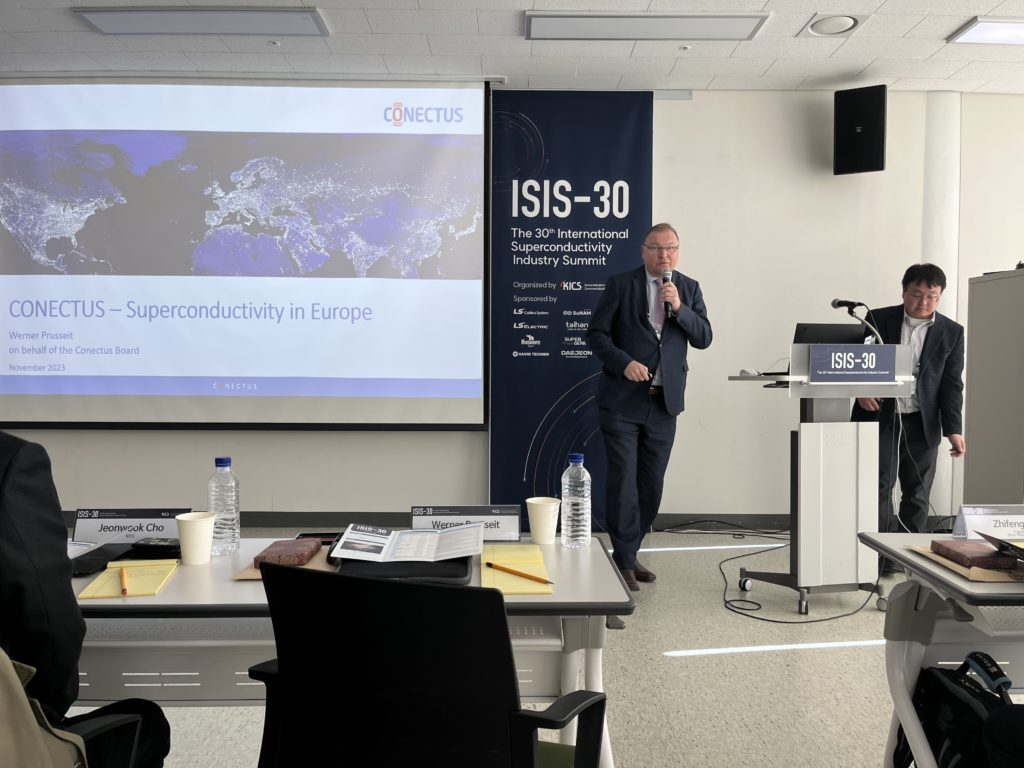
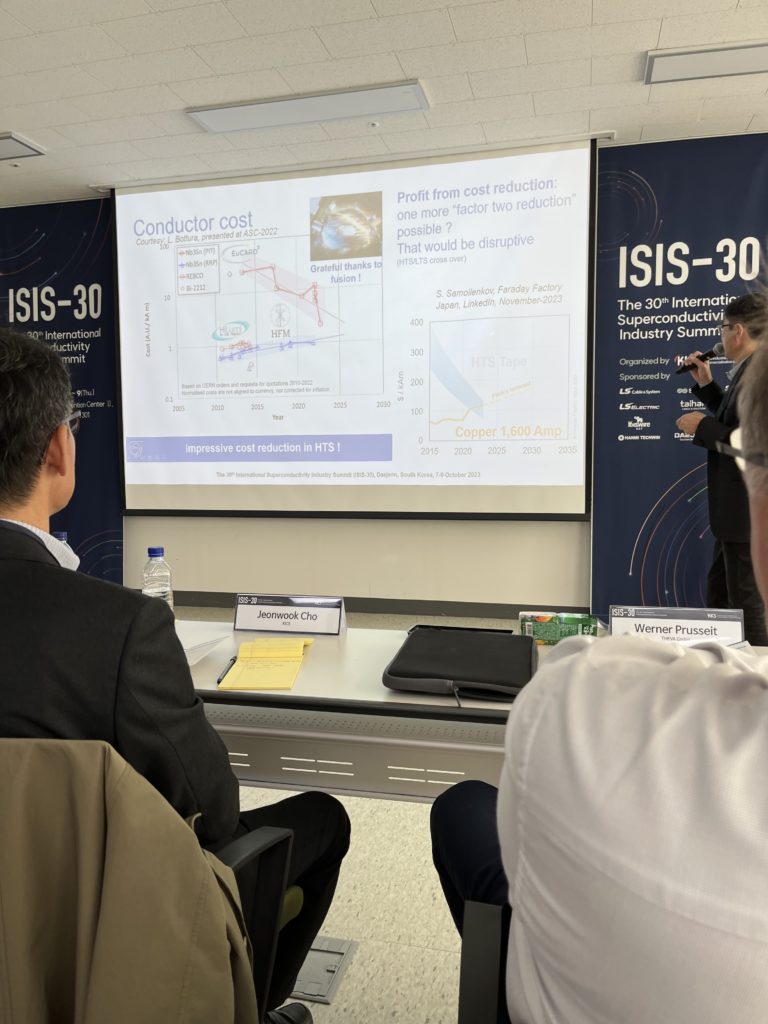
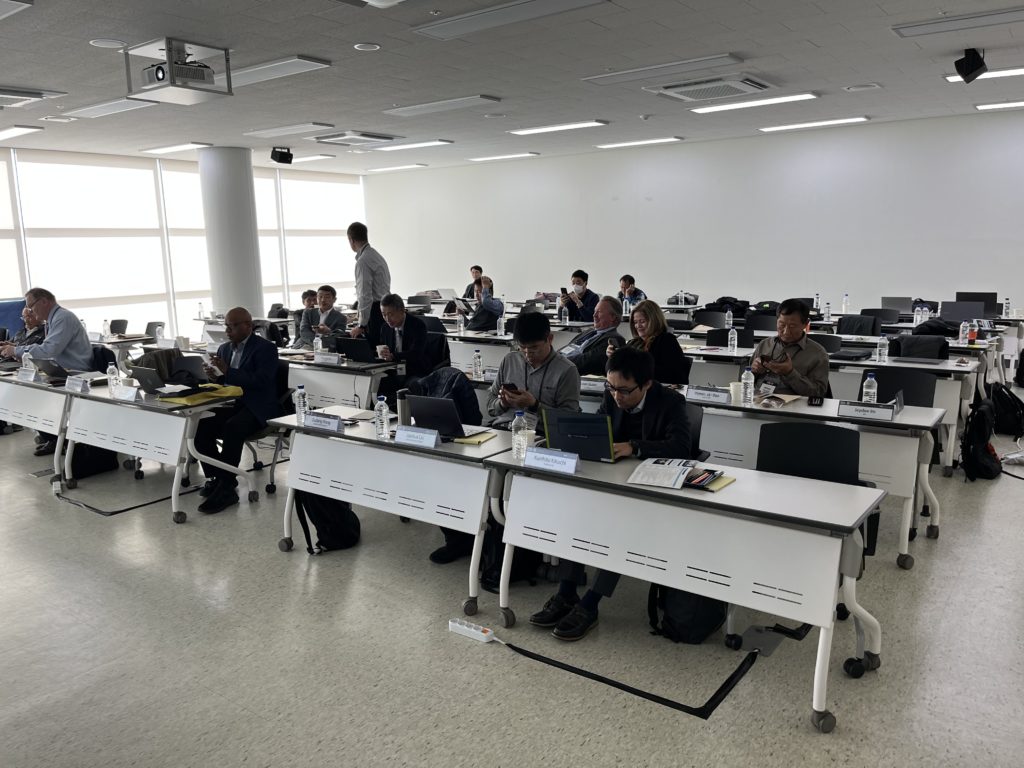
CONECTUS Early Career Award winners 2023
The Awards committee consisting of the CONECTUS Board + eleven other experts in their respective fields have selected the CONECTUS Awards winners from 11 applicants who had send their work for evaluation as follows:
1st and 2nd prize (shared position) Dr. Takanori Motoki from Aoyama Gakuin University, Japan
for his work: Development of homogeneous and high-performance REBCO bulks with various shapes by the single-direction melt growth (SDMG) method
and
Filip Antoncik from CAN SUPERCONDUCTORS, Czech Republic for his work:
Novel Approach for the Manufacture of Low Porosity, Single Grain EuBCO/Ag Bulk Superconductors Via Modified single-Direction Melt Growth
3rd prize Dr. Cornelia Hintze from THEVA for her work on High-temperature Superconductors for Magnetic Billet Heaters and for urban medium voltage electricity networks.
The winners have been selected by the awarding committee for the high quality of their work presented and for close proximity to market application.
The Conectus Awards were presented by representatives of CONECTUS Board during EUCAS closing ceremony.
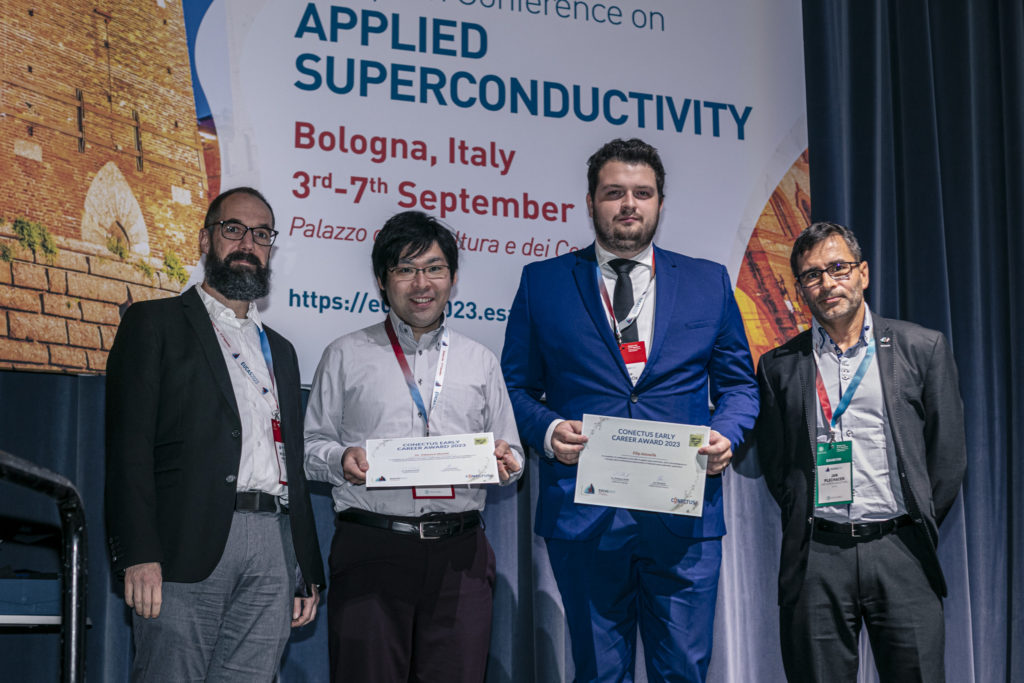
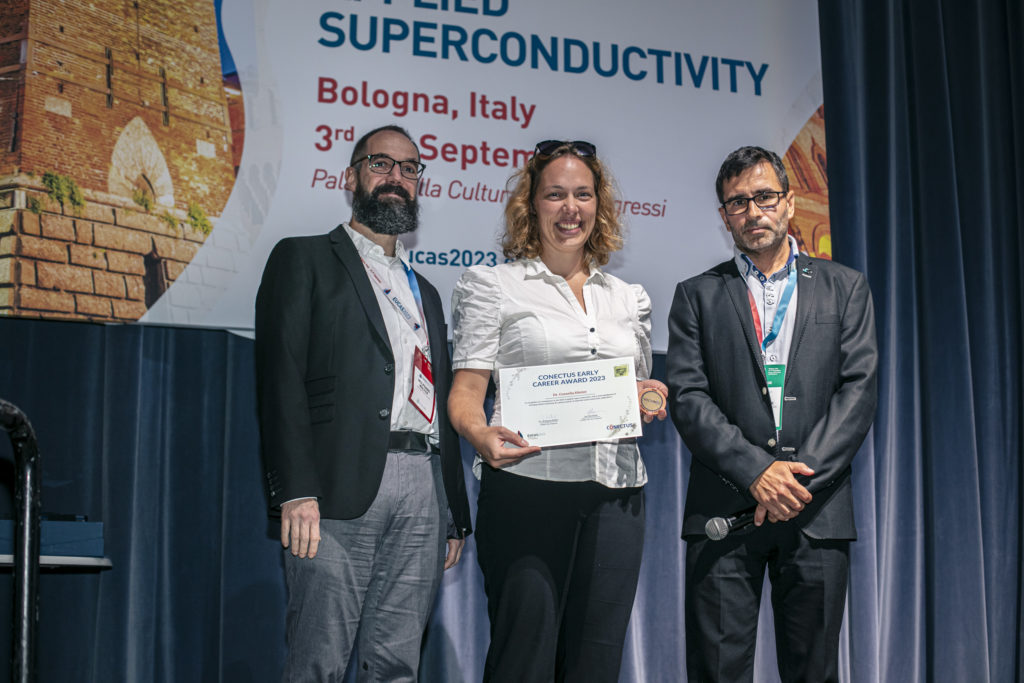
CONECTUS Co-organizer of Superconductivity for Sustainable Energy Systems and Particle Accelerators Days
Together with GSI, IFAST, MT ARD, more info at: https://indico.gsi.de/event/17548/
Bilfinger Noell signs partnership agreement with Proxima Fusion
Bilfinger Noell was commissioned, among other things, with the production design and
construction of the W7-X demonstration coil, as well as the 50 non-planar main field
coils.
Mark&Wedell partners with SuperNode
Mark & Wedell will design, develop, and manufacture state-of-the-art current leads for the testing of SuperNode’s superconducting cables.
3rd EFATS Workshop on Hydrogen Fuelled Superconducting Powertrains for Aviation workshop announced
EFATS2023 will be held on 4 & 5 October 2023 in Bristol, UK. It will be the 3rd international workshop on Emissions Free Air Transport through Superconductivity for longer range or heavier aircraft.

Current plans for electrifying aviation will deliver solutions for shorter range or smaller capacity aircraft, at stretch targets of 2,000 nm and 200 passengers. However a significant proportion of modern air transport relies on aircraft carrying 200-500 passengers over intercontinental ranges. Battery or hydrogen fuelled electrical powertrains currently being researched or tested will struggle to deliver the power density to achieve these requirements.
Superconducting power distribution systems have been considered for years, but the growth of interest in hydrogen fuel and current research into superconducting motors opens up synergies between these three ideas, specifically the simultaneous use of a cryogenic cooling system required by both the hydrogen fuel system and the superconducting powertrain. This combined system offers a significant improvement in whole system power density – perhaps enough to electrify larger aircraft.
These ideas are not pipe-dreams. There is a market need, and work being done to fill it. Roland Berger forsees a need for a superconducting systems to fill the high end gap of the aircraft market – perhaps as much as 20%. ZeroAvia sees a requirement for this sort of system for its future, larger designs. Both GKN Aerospace and Airbus UpNext are building their own ground based demonstrators to prove the concept. These are both due to be operational within 3 years. If successful, plans show on-aircraft demonstrators in a few years time.
Dr Shirley Pei at the University of Bath launched a pre-cursor event with the UK Magnetics Society in June 2020 to look at the idea of electrifying larger aircraft. Following this, she was a part of a group supported by Macresco Ltd which designed the EFATS workshops to provide a platform to share relevant work and ideas. The aim of the workshops is to bring together all aspects of the system – cryogenics, hydrogen, superconducting cabling and motors, aircraft design, etc – with the researchers, suppliers, manufacturers, operators, OEMs, regulators, and infrastructure owners to identify the science, engineering, and commercial issues, challenges, opportunities, and solutions.
The first workshop took place online in 2021, while Prof Min Zhang and Prof Weijia Yuan at the University of Strathclyde chaired the first in person workshop in 2022 in Glasgow, UK, sponsored by Stirling Cryogenics. 80 delegates heard detailed technical presentations from ZeroAvia, GKN Aerospace, Karlsruhe Institute of Technology, Airbus UpNext, University of Bath, H2Gen, Georgia Institute of Technology, US Air Force, FAMU-FSU, Fujikura, Absolut Systems, HyperTech, and others.
Dr Pei and Dr Mike Hales of GKN Aerospace will chair the third workshop on 4-5 October 2023, in Bristol, UK. The programme will include some invited speakers, along with significant discussion and networking opportunities. Anyone interested is invited to apply to present on any subject relevant to the workshop, including but not limited to cryogenics, hydrogen supply and systems, superconducting cabling and motors, aircraft design, and relevant infrastructure.
Anyone interested in the future of electric aircraft should attend the next workshop, which will include visits to the GKN Aerospace Technical Centre, GKN Aerospace’s facilities at IAAPS, and Bath University’s superconductivity laboratories, as well as the detailed presentations and discussions.
For more information on EFATS2022, see efats.info
